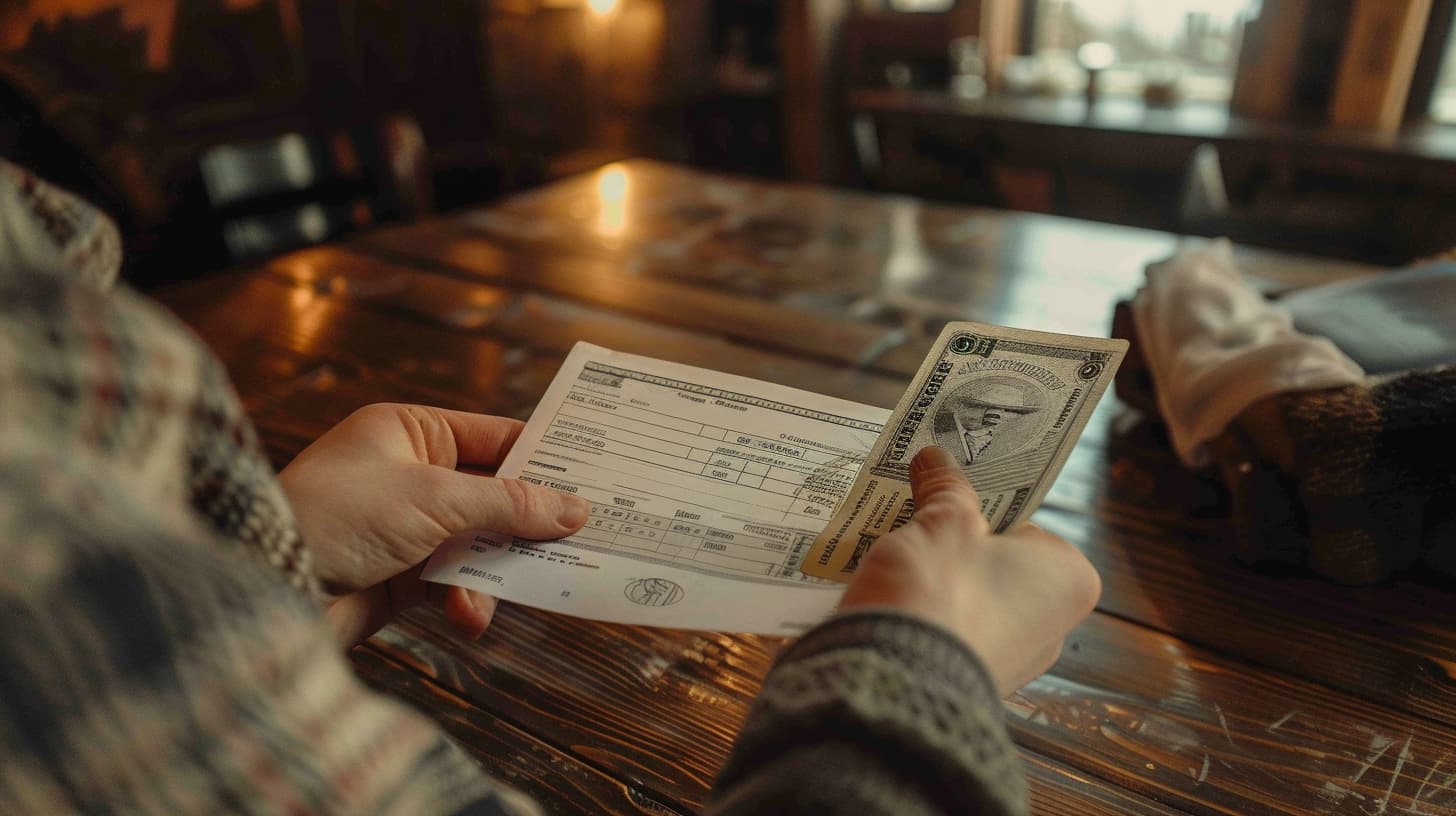Have you ever stopped to ponder why a simple money order transaction requires you to provide identification?
The answer might surprise you. Understanding the rationale behind this seemingly mundane process can shed light on the intricacies of financial security and regulatory compliance in today’s interconnected world.
By exploring the underlying reasons for ID requirements, you can gain valuable insights into how these measures play a crucial role in safeguarding your financial well-being and the integrity of the banking system.
Identity Verification for Security Measures
To enhance security measures, verifying identities for money orders is crucial in combating money laundering and illegal financial activities. Identity verification plays a pivotal role in upholding record-keeping standards for cash transactions and promoting transparency in financial operations.
By confirming the purchaser’s identity, institutions can fortify their defenses against fraudulent schemes and illicit financial activities. Moreover, adhering to stringent identity verification protocols ensures compliance with anti-money laundering regulations, thereby bolstering security within the realm of banking operations.
Tracking financial activities through proper identification protocols not only strengthens overall security but also aids law enforcement agencies in their investigations. Ultimately, the practice of verifying identities for money orders serves as a cornerstone in the fight against money laundering, supports transparency in financial dealings, and enhances the overall integrity of the financial system.
Preventing Money Order Fraud
By providing identification for money orders, you significantly reduce the risk of falling victim to money order fraud. Verifying the purchaser’s identity is a crucial step in preventing money laundering and fraudulent activities. It not only deters individuals from engaging in illegal financial schemes but also promotes transparency in cash transactions.
The identification requirements play a vital role in enhancing security measures, protecting both the sender and the receiver. Failure to adhere to these measures can lead to severe legal repercussions and compliance penalties.
By collecting purchaser information, financial institutions can maintain proper record-keeping, which is essential for tracking and monitoring financial activities. This process not only safeguards against potential fraud but also ensures compliance with regulations set forth to combat illicit financial practices.
Embracing these security measures is essential for safeguarding transactions and maintaining the integrity of the financial system.
Legal Compliance for Money Transfers
Ensuring legal compliance for money transfers entails meticulous record-keeping of purchaser details and adherence to identification requirements as mandated by relevant financial regulations. This process plays a crucial role in upholding the integrity of financial transactions and preventing illicit activities such as money laundering.
Here are some key points to consider:
- Money order transactions exceeding $3,000 to $10,000 require purchaser identification to comply with 31 CFR § 103.29 regulations.
- Record-keeping of purchaser details like name, date of purchase, money order serial numbers, and amount is mandatory for legal compliance.
- Failure to verify purchaser identity for money orders can lead to potential legal repercussions and non-compliance penalties.
- The legal framework, including the Bank Secrecy Act of 1970, mandates identification requirements to prevent money laundering and illicit financial activities.
Safeguarding Against Money Laundering
Safeguard your financial transactions by adhering to money order ID requirements to combat money laundering effectively. Verifying purchaser identity is essential to comply with anti-money laundering regulations and safeguard financial institutions against illicit fund flows.
ID checks play a vital role in preventing individuals from engaging in illegal financial schemes through money orders. By ensuring transparency in financial transactions, these identification measures contribute to maintaining the integrity of the financial system.
| Money Order Benefits | Importance |
|---|---|
| Detecting money laundering | Safeguards financial institutions |
| Verifying purchaser identity | Prevents illicit fund flows |
| Enhancing transparency | Combats illegal financial schemes |
Protecting Against Financial Scams
To protect yourself from falling victim to financial scams, being vigilant about potential red flags and staying informed about common schemes is crucial. Here are some key points to help you safeguard against financial scams:
- Money Laundering and Fraudulent Activities: Understanding how money laundering and fraudulent activities operate can help you recognize suspicious transactions.
- ID Requirements for Record-Keeping: Providing identification for money orders aids in maintaining transparent records of financial transactions.
- Legal Repercussions and Non-Compliance Penalties: Failure to comply with ID requirements for money orders can lead to severe legal consequences and penalties.
- Monitoring by Regulatory Authorities: Regulatory bodies like FinCEN rely on ID verification to monitor financial activities and prevent illicit practices.
Frequently Asked Questions
Why Do They Need ID for Money Order?
You need ID for money orders because it helps prevent fraud, money laundering, prevents money order scams, and illegal activities. Providing identification supports compliance with regulations and enhances security measures in banking. Failure to provide ID can lead to legal consequences.
How Can I Get a Money Order Without ID?
To get a money order without ID, explore options like smaller amounts or different locations which may not require it. Consider alternatives like cashier’s checks or prepaid cards. If still needed, digital payments could be an option.
What Information Is Needed for a Money Order?
To get a money order, you’ll need to provide your full name, address, purchase date, exact amount, and ID for compliance. The serial number is crucial for tracking. If you lack a deposit account, extra identification might be required.
Do They Verify Money Orders?
When you purchase a money order, issuers verify your identity to comply with regulations. This helps prevent money laundering and track transactions effectively. It’s essential for orders over $3,000 to $10,000. Non-compliance can lead to legal penalties.
Only by delving into the reasons behind ID requirements for money orders can you uncover the hidden complexities shaping financial security.
Related Resources
How to Check if a Money Order Was Cashed



